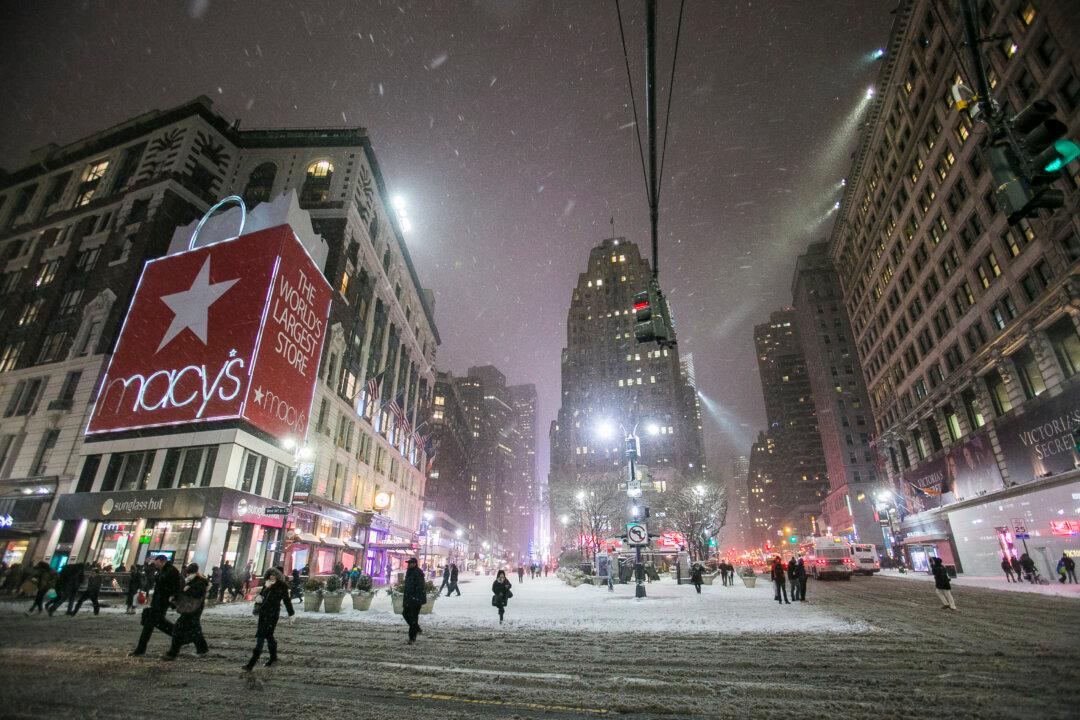NEW YORK—In the end, snowstorm Juno didn’t turn out to be as bad as expected in New York, but businesses and government should always have a plan B in case the going gets tough.
“Before the first snowflake dropped they cancelled 8,000 flights. Do you know how much business was lost? We take on that responsibility, we have to,” says Alphonzo Albright, former Chief Information Officer of the City of New York and currently with video technology company Polycom. Nevertheless, Albright still feels it’s preferably to be over-prepared.
To see how bad it can get, we just have to take data from January 2014. According to the Federal Reserve, the economy lost $50 billion in production and 76,000 jobs because of the bad weather. The New York Times estimates it costs the city of New York $160 million per day if workers can’t take public transport to work and also can’t work remotely.





